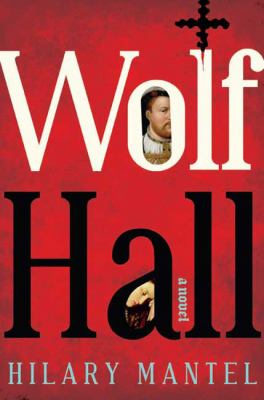
by Hilary Mantel
Library Journal
: Starred Review. As Henry VIII's go-to man for his dirty work, Thomas Cromwell (1485–1540) isn't a likely candidate for a sympathetic portrait. He dirtied his hands too often. In the end, Henry dropped him just as he had Cromwell's mentor, Cardinal Wolsey, who counseled the king before him. But as Mantel (Beyond Black) reminds us, Cromwell was a man of many parts, admirable in many respects though disturbing in others. Above all, he got things done and was deeply loyal to his masters, first Wolsey and then the king. Nor was Henry always bloated and egomaniacal: well into his forties, when in good spirits, the king shone brighter than all those around him. VERDICT Longlisted for the Booker Prize, this is in all respects a superior work of fiction, peopled with appealing characters living through a period of tense high drama: Henry's abandonment of wife and church to marry Anne Boleyn. It should appeal to many readers, not just history buffs. And Mantel achieves this feat without violating the historical record! There will be few novels this year as good as this one. [See Prepub Alert, LJ 5/1/09; history buffs may also enjoy reading Robert Hutchinson's biography, Thomas Cromwell: The Rise and Fall of Henry VIII's Most Notorious Minister, reviewed on p. 66.—Ed.]—David Keymer, Modesto, CA Copyright © Reed Business Information, a division of Reed Elsevier Inc. All rights reserved. Distributed by Syndetic Solutions Inc. Terms
Publishers Weekly
: Henry VIII's challenge to the church's power with his desire to divorce his queen and marry Anne Boleyn set off a tidal wave of religious, political and societal turmoil that reverberated throughout 16th-century Europe. Mantel boldly attempts to capture the sweeping internecine machinations of the times from the perspective of Thomas Cromwell, the lowborn man who became one of Henry's closest advisers. Cromwell's actual beginnings are historically ambiguous, and Mantel admirably fills in the blanks, portraying Cromwell as an oft-beaten son who fled his father's home, fought for the French, studied law and was fluent in French, Latin and Italian. Mixing fiction with fact, Mantel captures the atmosphere of the times and brings to life the important players: Henry VIII; his wife, Katherine of Aragon; the bewitching Boleyn sisters; and the difficult Thomas More, who opposes the king. Unfortunately, Mantel also includes a distracting abundance of dizzying detail and Henry's all too voluminous political defeats and triumphs, which overshadows the more winning story of Cromwell and his influence on the events that led to the creation of the Church of England. (Oct.) Copyright © Reed Business Information, a division of Reed Elsevier Inc. All rights reserved. Distributed by Syndetic Solutions Inc. Terms
|

